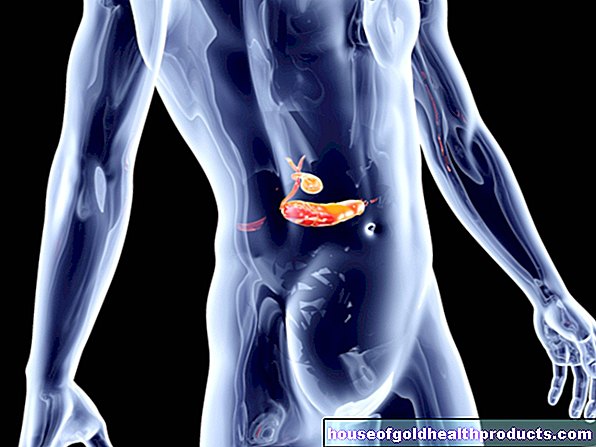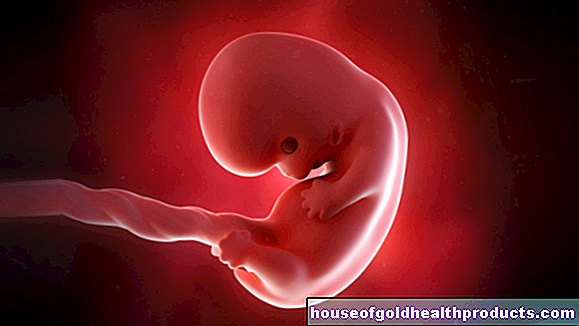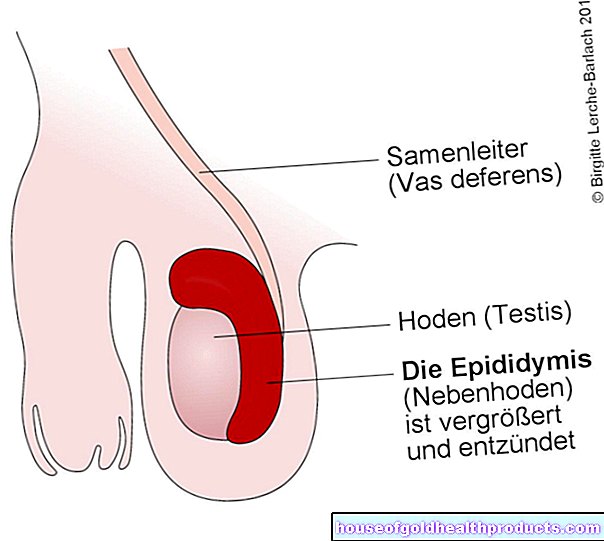Diabetes: Save carbohydrates in the evening
Christiane Fux studied journalism and psychology in Hamburg. The experienced medical editor has been writing magazine articles, news and factual texts on all conceivable health topics since 2001. In addition to her work for, Christiane Fux is also active in prose. Her first crime novel was published in 2012, and she also writes, designs and publishes her own crime plays.
More posts by Christiane Fux All content is checked by medical journalists.Humans work in time with their internal clock - this also applies to the sugar metabolism. Meals rich in carbohydrates, for example, cause blood sugar levels to climb particularly high if they are consumed in the evening. At least people with diabetes - or precursors of it - should take this into account.
Researchers led by Katharina Keßler from the German Institute for Human Nutrition Potsdam-Rehbrücke have investigated why carbohydrates have such a negative impact on the sugar balance in the evening. The 29 men who participated in the study were normal weight to obese. Eleven of them did not have diabetes yet, but already had an impaired sugar metabolism, which is a precursor to diabetes. The blood sugar values measured on an empty stomach are already too high or high blood sugar values do not drop quickly enough.
Carbohydrates better in the morning
The study participants alternately followed two different diets for four weeks each. Both diets provided the same amount of calories, carbohydrates, fats, and protein throughout the day. However, as part of diet plan A, the participants ate with a high concentration of carbohydrates until 1.30 p.m. - but more fat-biased from 4.30 p.m. to 10 p.m. With Diet Plan B it was exactly the opposite.
Diet B, with meals rich in carbohydrates in the afternoon and evening, proves to be significantly less favorable for men with impaired sugar metabolism. On average, their blood sugar levels after meals were 7.9 percent lower than in diet B. "Interestingly, we could not observe this effect in healthy men," reports study director Keßler. However, the glucose tolerance, i.e. the willingness of the body cells to absorb sugar from the blood, decreased in all participants over the course of the day.
Gut hormones follow the internal clock
A possible explanation for the phenomenon was provided by the values of two intestinal hormones: glucagon-like peptide-1 (GLP-1) and peptide YY (PYY). They influence the sugar balance and appetite through different mechanisms. Their release also depends on the internal clock: from noon onwards, their level drops significantly. In the men with impaired sugar metabolism, however, the drop was considerably more pronounced than in the test subjects with a healthy blood sugar balance. That could explain why a high-carbohydrate meal in the evening is so bad for them.
The researchers therefore recommend that men with impaired sugar metabolism avoid meals that are high in carbohydrates in the afternoon and evening. This includes men with pre-diabetes as well as diabetics.
Also valid for women?
The scientists assume that such dietary recommendations would also benefit women with sugar metabolism disorders. However, it is more difficult to prove it, since the glucose tolerance in women is not only influenced by the daily rhythm, but also by the cycle. For this reason, the researchers did not include any female test subjects in the study.
Precursor for diabetes
With prediabetes, the blood sugar values measured on an empty stomach are 100 to 125 mg / dl, higher than the normal value - but not yet at the diabetes level. In people with prediabetes, high blood sugar levels do not drop as quickly as they should - a so-called glucose tolerance test brings this to light.
Lifestyle changes can often prevent those affected from slipping into diabetes - for example, by losing weight, doing more sport and eating more healthily. Otherwise, most will develop type 2 diabetes within five to ten years.
Tags: smoking travel medicine sleep





























